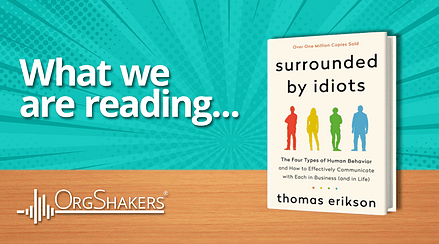Menu

Supporting Employee Wellbeing in Small Businesses: Strategies That Work
With the cost of living continuing to rise, employee wellbeing has shifted from a “nice-to-have” to a critical driver of business success. For small businesses and startups, competing with larger companies on salary alone can be challenging. But that does not mean you cannot make a significant impact on your team’s wellbeing.
According to LendingClub, 64% of Americans were living paycheck to paycheck in 2022, and Employment Hero reports that nearly 30% of employees say financial stress is their biggest workplace concern. These pressures, combined with rising rates of burnout and mental health challenges, make it essential for leaders to take a proactive approach.
Below, we explore practical, cost-effective ways to enhance employee wellbeing without putting undue strain on your budget.
How Can Small Businesses Support Employees Financially Without Raising Salaries?
Even if pay increases are not feasible, you can help employees manage their finances more effectively.
- Promote financial wellness tools: Recommend apps like Mint or EveryDollar to help staff track spending and savings.
- Explore pre-tax benefits: Flexible Spending Accounts (FSAs) allow employees to set aside pre-tax dollars for healthcare or dependent care.
- Consider 401(k) loan options: If you offer a retirement plan, allowing low-interest loans from these funds can help employees access cash while keeping interest payments within their own accounts.
These steps can ease financial anxiety and demonstrate that you are invested in your team’s long-term stability.
Does Flexible Working Really Improve Productivity?
Yes — when implemented thoughtfully, flexibility can boost both productivity and morale. Research shows that remote workers often report a better work-life balance and higher productivity compared to fully in-office staff.
For small businesses, flexible work can:
- Reduce commuting time and costs for employees
- Give staff more control over their schedules
- Prevent unnecessary stress from after-hours obligations
Whether through hybrid arrangements or fully remote roles, flexibility helps employees bring their best selves to work.
How Can Employers Address Mental Health More Openly?
Despite progress, nearly half of employees still feel uncomfortable discussing mental health at work. For small businesses, creating a safe, open culture is essential.
Practical steps include:
- Scheduling regular one-to-one check-ins
- Offering anonymous feedback channels
- Training managers to recognize early signs of stress
- Providing access to mindfulness tools like Calm or Headspace
By normalizing conversations about mental health, you remove stigma and create an environment where employees can seek support before challenges escalate.
What Role Does Physical Wellbeing Play in Employee Performance?
Physical health and mental health are closely linked. Exercise releases endorphins, which help reduce stress and improve mood. You can promote physical wellbeing by:
- Offering discounted or free gym memberships
- Organizing wellness challenges or group activities
- Sharing resources for local fitness options
Even small gestures toward physical wellness can help employees feel healthier, more energized, and more engaged at work.
How Can Communication Improve Employee Engagement?
Open communication is one of the most cost-effective tools for boosting wellbeing. By regularly speaking with your employees about their challenges, career goals, and workload, you can make targeted adjustments.
In small teams, flexibility with roles can be a powerful motivator. For example, if one employee is feeling burned out in a certain area and another is eager to develop new skills, swapping responsibilities can improve morale while building capabilities across the business.
Which Perks Matter Most for Today’s Workforce?
While salary is important, meaningful perks can be a game-changer for attracting and retaining talent. Remote and flexible work options remain at the top of employees’ wish lists, followed by professional development opportunities and recognition programs.
By focusing on perks that resonate with your team — even if they cost little to implement — you send a strong signal that you value their growth, balance, and wellbeing.
Why Should Small Businesses Make Wellbeing a Business Priority?
Employee wellbeing is directly tied to productivity, retention, and overall business success. Employment Hero’s data shows that only 26% of employees in small businesses say their company has wellbeing programs in place — a clear opportunity for forward-thinking leaders.
Prioritizing wellbeing is not just about caring for your people — it is a strategic move that can help your business thrive in a competitive market. By combining empathy with practical initiatives, you can create a workplace where employees feel supported, motivated, and committed to your shared goals.
If you want to explore tailored strategies for your organization, contact the team at Orgshakers today!



